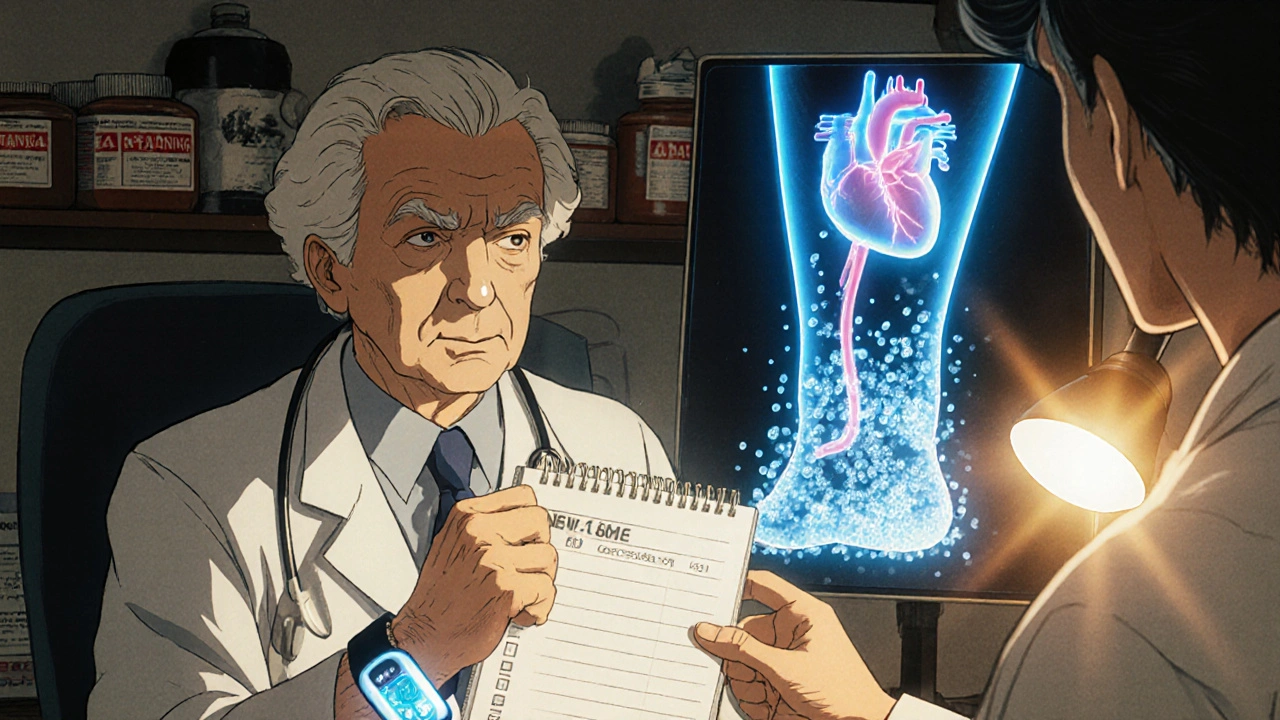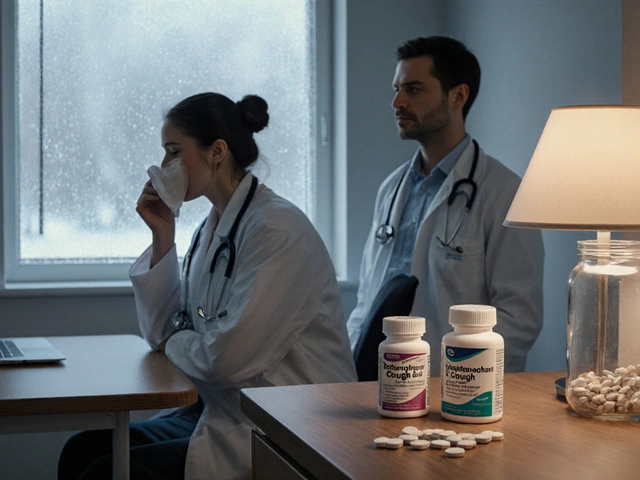Medication Swelling Risk Calculator
This tool helps you understand your risk of medication-related swelling based on the medications you take and your health factors. Results are for informational purposes only and should not replace medical advice.
Your Risk Assessment
Swelling in your ankles, feet, or hands after starting a new medication isn’t rare-but it’s not always harmless. If you’ve noticed your shoes feel tighter, your rings won’t slide on, or your legs look puffy by the end of the day, you’re not alone. Around 4.4 million Americans experience swelling caused by their medications every year. Most of the time, it’s mild and just annoying. But sometimes, it’s a red flag for something serious. Knowing the difference can prevent hospital visits, heart complications, or worse.
What Medications Cause Swelling?
Not all swelling is the same. The most common culprits are drugs that affect how your body holds onto fluid. Calcium channel blockers like amlodipine (Norvasc) are top of the list. About 1 in 5 people taking 10mg daily develop noticeable ankle swelling. At 5mg, it’s closer to 1 in 7. That’s why so many people switch to other blood pressure meds like losartan and notice the puffiness disappears within weeks. Then there’s gabapentin and pregabalin, often prescribed for nerve pain or seizures. About 8% of users on standard doses report swelling, mostly in the legs. It’s not just a minor side effect-patients on Drugs.com rate gabapentin’s edema as 7.8 out of 10 in severity. One Reddit user wrote: “After three months on amlodipine, I couldn’t fit into my shoes. Switched to losartan-swelling gone in two weeks.” Diabetes medications like pioglitazone (Actos) and rosiglitazone (Avandia) are another group to watch. Up to 10% of users gain fluid weight, sometimes rapidly. The American Diabetes Association warns that if you gain more than 5% of your body weight in a month while on these drugs, it’s not just water weight-it could be heart strain. Even common painkillers like ibuprofen and naproxen can cause swelling in about 3% of regular users. Corticosteroids like prednisone? That number jumps to 20-30% if you’re on more than 20mg daily for over two weeks. Hormone therapies, including birth control pills and estrogen replacement, also add to the list. About 1 in 10 postmenopausal women on hormone therapy report noticeable swelling.How to Tell If It’s Just a Side Effect-or Something Worse
Here’s the key question: Is this swelling just from your pill, or is it your body screaming that something else is wrong? Medication-induced swelling is usually bilateral-it shows up in both ankles or both hands. It’s often soft to the touch, leaves a dent when you press it (called pitting edema), and gets worse by evening. It doesn’t usually come with pain, redness, or warmth. But if swelling is only on one side? That’s a red flag. Unilateral leg swelling, especially if it’s painful or warm, could mean a blood clot (deep vein thrombosis). A difference of 2cm or more in leg circumference at the calf is a major warning sign. Swelling that comes with shortness of breath, especially when lying down, or needing extra pillows to sleep? That’s not just fluid retention-it could be heart failure. Around 90% of people with advanced heart failure have bilateral leg swelling that worsens at night. If you’re on amlodipine and suddenly feel winded climbing stairs, don’t brush it off as “just getting older.” Massive swelling in the belly (ascites) along with puffy legs? That points to liver disease. Swelling with foamy urine, extreme fatigue, or unexplained weight gain? Kidney trouble could be the cause. One patient on HealthUnlocked shared: “My doctor said my pioglitazone swelling was ‘just a side effect’-until I ended up in the ER with fluid in my lungs.”When You Should Call Your Doctor Right Away
You don’t need to wait for symptoms to get bad. Here’s when to act:- Your weight increases by more than 2.2 pounds (1 kg) in 24 hours or 5 pounds (2.3 kg) in a week.
- You feel short of breath, especially when lying flat or during light activity.
- Swelling is only on one leg, or it’s red, hot, or painful.
- You gain more than 5% of your body weight in one month while on pioglitazone, rosiglitazone, or high-dose steroids.
- You have swelling along with confusion, dizziness, or chest pain.
What You Can Do While Waiting to See Your Doctor
You don’t have to just wait. There are simple, proven ways to manage mild medication-related swelling:- Elevate your legs above heart level for 15-20 minutes, four times a day. Clinical studies show this can reduce ankle swelling by 1.5cm in just two days.
- Wear compression stockings with 20-30 mmHg pressure. They reduce swelling volume by about 30% in a week.
- Limit sodium to under 2,000mg per day. A 2023 trial with 247 patients showed measurable improvement in swelling within 72 hours.
- Track your weight daily. A sudden 2.2-pound gain is your body’s early warning system for fluid overload.
What Your Doctor Might Do
If you report swelling, your doctor won’t just assume it’s from your pill. They’ll check for other causes first. That might mean:- A blood test to check kidney and liver function.
- A urine test to look for protein (a sign of kidney disease).
- An echocardiogram to see how well your heart is pumping.
- Blood tests for BNP or NT-proBNP-markers that rise when your heart is under stress.
- Lower your dose-especially with amlodipine or gabapentin.
- Switch you to another drug in the same class with less fluid retention risk. For example, switching from amlodipine to losartan or from pioglitazone to metformin.
- Add a low-dose diuretic (water pill), though this isn’t always recommended long-term because it can cause other imbalances.

Why This Matters More Than You Think
Medication-related swelling isn’t just a nuisance-it’s a major healthcare burden. In the U.S., it leads to over 5 million doctor visits a year and costs $4.8 billion annually. Each hospitalization for severe fluid overload averages $11,200. The real danger? People ignore it. They think, “It’s just a side effect.” But when you’re on multiple meds-common in older adults-the risks stack up. Nearly 28% of people over 65 take at least one drug that causes swelling. Combine that with heart disease, kidney issues, or diabetes, and you’ve got a perfect storm. The bottom line: Don’t accept swelling as normal. If it’s new, getting worse, or paired with other symptoms, speak up. Your doctor might not bring it up-but you can. Bring your list of meds, note when the swelling started, and track your weight. That simple step could catch heart failure before it’s too late.Frequently Asked Questions
Can I stop my medication if I get swelling?
Don’t stop any medication without talking to your doctor. Stopping blood pressure or diabetes drugs suddenly can be dangerous. Instead, report the swelling and ask if there’s a safer alternative. Many people switch from amlodipine to losartan or from pioglitazone to metformin and see their swelling disappear without losing control of their condition.
Is swelling from medication permanent?
Usually not. Once you stop or switch the drug, swelling often improves within days to weeks. With amlodipine, many see results in 1-2 weeks. For steroids or hormones, it can take longer-up to a few months-as your body readjusts. But if swelling persists after changing meds, it’s a sign you need further testing for heart, kidney, or liver issues.
Can over-the-counter supplements cause swelling?
Yes. Some herbal supplements like licorice root, high-dose sodium-containing antacids, and even certain protein powders can cause fluid retention. Licorice, in particular, mimics aldosterone-a hormone that makes your body hold onto salt and water. If you’re taking supplements and notice swelling, add them to your medication list when you talk to your doctor.
Does drinking more water help with medication swelling?
No. Drinking more water won’t fix fluid retention caused by medications. In fact, if your body is already holding onto too much fluid, extra water can make it worse. The real fix is reducing sodium, elevating your legs, using compression, and addressing the root cause-either by changing your meds or treating an underlying condition like heart failure.
Can I use diuretics (water pills) to treat medication swelling?
Sometimes, but it’s not the first choice. Diuretics can help temporarily, but they don’t fix the cause. They can also cause low potassium, dizziness, or kidney stress-especially in older adults. Most doctors prefer to adjust the medication causing the swelling first. Diuretics are usually reserved for cases where the swelling is severe and the cause can’t be changed right away, like in heart failure.









15 Comments
Eric Healy
Nov 17 2025I had ankle swelling on amlodipine for 6 months. Thought it was just aging. Switched to losartan and boom, gone in 10 days. Why do docs never mention this?
Also, compression socks are a game changer. No joke.
Shannon Hale
Nov 18 2025This is why Big Pharma doesn't want you to know. They profit off you getting hospitalized for 'side effects' they knew about since 1998. Amlodipine? Designed to make you dependent on diuretics, then heart meds, then kidney meds. It's a money pipeline.
And yes, your 'doctor' is paid by them. Look up the pharma kickback scandals. This isn't medicine. It's a racket.
Bill Machi
Nov 20 2025The notion that swelling from medication is merely 'annoying' is dangerously naive. In a nation where 40% of the elderly are on polypharmacy regimens, this is not a side effect-it is a systemic failure of clinical oversight. The FDA’s passive monitoring of edema-inducing agents reflects a regulatory capture that prioritizes market expansion over patient safety.
Elia DOnald Maluleke
Nov 22 2025In South Africa, we call this 'the silent thief'-the medicine that steals your mobility without warning. I watched my uncle go from walking daily to bedridden after starting pioglitazone. The doctor said 'it's normal'.
Normal? Normal is not when your legs swell like balloons and your heart struggles to pump through the fluid. We must stop normalizing what is pathological.
satya pradeep
Nov 23 2025Bro i was on gabapentin for sciatica and my ankles looked like water balloons. 8% sounds low-i knew 3 people in my gym who dropped it because they couldn't fit into sneakers. Switched to pregabalin and same thing. Then tried tramadol-no swell.
Also, sodium is the real villain. Cut salt, drink less soda, elevate legs. Simple as that. No magic pills needed.
Prem Hungry
Nov 23 2025To everyone experiencing this: you are not alone. I was terrified when my legs swelled on prednisone after my autoimmune flare. But I tracked my weight daily, wore my compression socks religiously, and spoke up at my next appointment. My doctor lowered my dose and switched me to azathioprine.
Your voice matters. Don't wait until you're breathless. Write it down. Bring it in. You are your best advocate.
Leslie Douglas-Churchwell
Nov 24 2025Of course they don’t tell you. The VascuComp Plus device? FDA-approved in 2023? That’s the same year the CDC quietly changed guidelines to stop recommending routine ankle checks for seniors on CCBs. Coincidence? Or is this part of the Great Fluid Retention Cover-Up™?
Also, did you know licorice root is banned in Sweden? But you can buy it at CVS next to your amlodipine. 🤔💧
shubham seth
Nov 24 2025Let’s be real: this entire article reads like a pharmaceutical whitepaper with a human skin graft. 'About 1 in 5'-who measured that? A $200k/year clinical trial rep with a clipboard?
The real statistic? 90% of patients never get told about alternatives. Doctors don’t care. They’re on quotas. Your swelling? Just another line item in their EHR. You’re not a person-you’re a prescription volume.
Kathryn Ware
Nov 26 2025I just want to say thank you for writing this. I’ve been swelling on birth control for 3 years and thought I was just 'puffy'. I started tracking my weight, cut sodium, and bought compression socks. Within a week, my ankles looked normal again.
I finally told my OB-GYN and she switched me to a low-dose progesterone-only pill. No more puffiness, no more guilt. You’re not crazy for noticing this. It matters. 💕❤️
kora ortiz
Nov 27 2025Swelling isn't normal. Period. If your shoes don't fit, your body is screaming. Don't wait for a hospital visit. Start with the socks. Start with the salt. Start with the weight log. You have power. Use it.
Jeremy Hernandez
Nov 28 2025I read this and thought 'finally someone gets it'. My mom was on amlodipine and prednisone at the same time. Swelling so bad she couldn’t walk. ER visit. Turned out her BNP was through the roof. Cardiologist said 'this should’ve been caught 6 months ago'.
Docs are too busy scrolling through their phones to ask 'how are your legs?' We gotta be the ones to speak up.
Tarryne Rolle
Nov 29 2025Is swelling really the problem-or is it our cultural obsession with 'fixing' every minor discomfort with a pill? What if the real solution is less medication, not more alternatives? We’ve turned the human body into a machine that needs constant calibration. Maybe the swelling is the body’s way of saying: stop.
Kyle Swatt
Nov 29 2025I’ve seen this in my clinic. Elderly patients on 5+ meds. Swelling? They think it’s 'just old age'. But when you dig deeper-weight gain, shortness of breath, fatigue-it’s not aging. It’s drug burden.
I tell my patients: if your legs look like they’ve been stuffed with wet sand, it’s not normal. It’s a red flag. And you deserve better than 'it’s a side effect'.
Deb McLachlin
Dec 1 2025The data presented is robust and clinically relevant. However, I am curious whether the referenced 2023 trial on sodium restriction included a control group matched for comorbidities and renal function. Without this, the causal attribution to sodium reduction remains speculative. Furthermore, the recommendation to use compression stockings assumes patient mobility and access-factors often unaddressed in socioeconomic disparities.
Eric Healy
Dec 2 2025^^^ I did that. Weight log, sodium tracker, socks. 3 weeks in, my doc said 'wow, you’re the first patient who showed up with actual data'. She switched me from amlodipine to valsartan. No swelling. No drama.
Docs need to see proof. Bring your numbers.